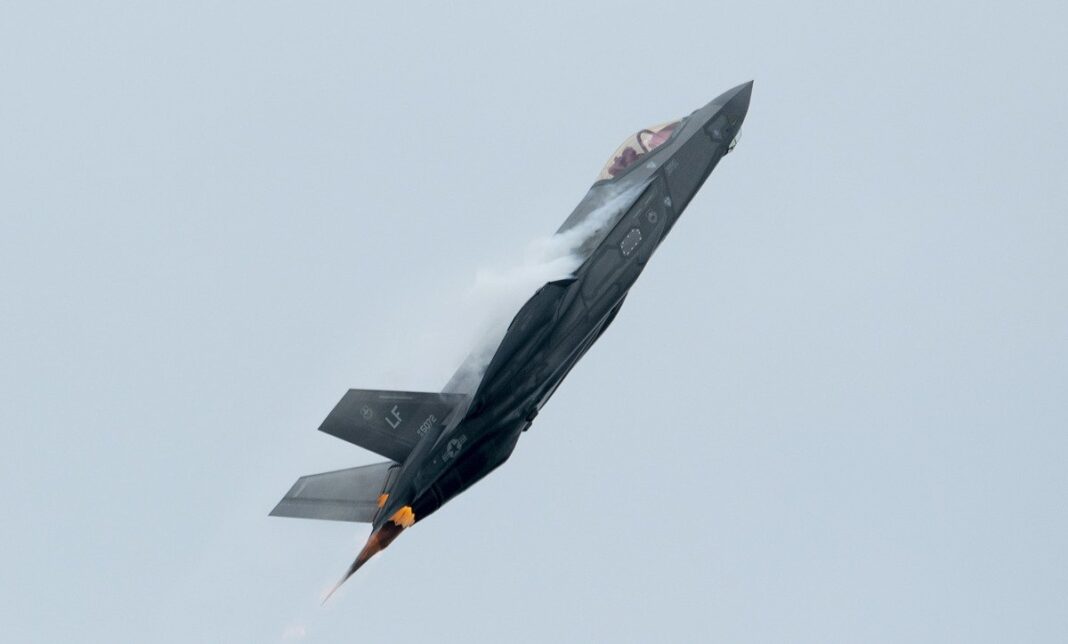The UK government has expressed openness to Canada joining a major international effort to build a new fighter jet. This project, known as the Global Combat Air Programme (GCAP), is a collaboration between the United Kingdom, Japan, and Italy. The goal is to develop an advanced sixth-generation fighter aircraft that will be ready by 2035.
UK Keeps the Door Open for Canada in Fighter Jet Program
The UK’s Defence Minister, Maria Eagle, responded to a parliamentary question by saying that Canada is not currently a part of the project but is welcome to join in the future. She emphasized that all three GCAP nations are open to working with other countries if it does not disrupt the project’s timeline.
Canada has strong security ties with the UK and is part of the Five Eyes intelligence alliance, which also includes the US, Australia, and New Zealand. Some experts believe this makes Canada a natural candidate for future participation. Additionally, Canada recently selected the F-35 fighter jet for its air force, aligning it with GCAP members who are also using or acquiring the same aircraft.
What is the Global Combat Air Programme?
The Global Combat Air Programme was launched in December 2022 as a joint effort between the UK, Japan, and Italy. The program aims to create a highly advanced multirole stealth fighter that will replace older aircraft in the Royal Air Force (RAF), Italian Air Force, and Japan’s Air Self-Defense Force.
This new fighter will combine cutting-edge technology, including:
- Stealth capabilities to evade enemy radar
- Artificial intelligence (AI) to assist pilots in combat
- Manned-unmanned teaming, allowing it to work with drones
- Advanced sensors for better battlefield awareness
GCAP merges two earlier projects: the UK-Italy Tempest program and Japan’s F-X program. Instead of working separately, the three countries decided to develop a common aircraft platform, ensuring cost efficiency and technological advancement.
A demonstrator aircraft is expected to be ready by 2027, allowing engineers to test key technologies before the full fighter is built. The program is managed by the GCAP International Government Organisation (GIGO), which is headquartered in the UK. The main companies involved include BAE Systems (UK), Mitsubishi Heavy Industries (Japan), and Leonardo S.p.A. (Italy). Over 1,000 suppliers from various countries are also contributing to the project.
Other Countries Interested in GCAP
Although Canada is not yet a member, it is not the only country showing interest in the project. Sweden and Saudi Arabia have also explored the possibility of joining, but both have faced challenges.
Sweden initially engaged in discussions related to the Tempest program, but its delayed fighter replacement plans made it difficult to commit fully. Eventually, Sweden decided not to join GCAP, focusing on its Gripen fighter program instead.
Saudi Arabia has been strongly interested in joining GCAP, particularly because it wants to develop its domestic defense industry. However, Japan has been cautious about allowing Saudi Arabia full access due to concerns over export restrictions and technology security. The UK and Italy have been more open to Saudi involvement, but no official agreement has been reached yet.
GCAP is structured to allow potential export opportunities, which is why Japan had to revise its strict arms transfer rules to align with UK and Italian policies. The program’s industrial partners, BAE, Leonardo, and Japan Aircraft Industrial Enhancement Co., have created a joint venture to oversee the aircraft’s design, production, and long-term maintenance.
With the UK confirming that Canada remains an option for future involvement, no official agreements have been made yet. Any future participation would depend on strategic alignment, funding, and industrial contributions without disrupting GCAP’s progress. For now, the UK, Japan, and Italy remain the core members, pushing forward with a demonstrator aircraft set for 2027 and full deployment by 2035.

